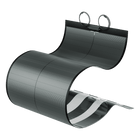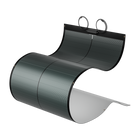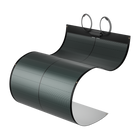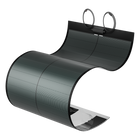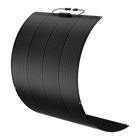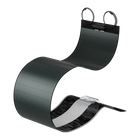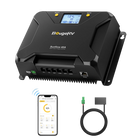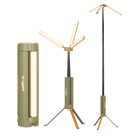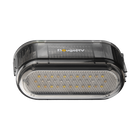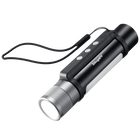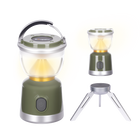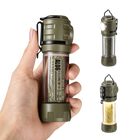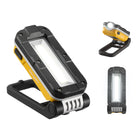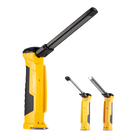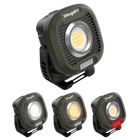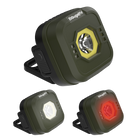Overlanding vs. Off-Roading: What’s the Difference?

Adventure enthusiasts often use the terms "overlanding" and "off-roading" interchangeably, but these two outdoor activities have different characteristics that set them apart. Both involve exploring terrain with a vehicle, but their purpose, approach, and experiences they offer differ greatly.
In this blog post, you'll learn the meaning of and differences between overlanding and off-roading, as well as their pros and cons. By the end of this blog, you will know exactly which path is right for your next adventure. Additionally, you will discover the essential gear for overlanding that can make your experience more comfortable.
Let's dive in!
What Is Overlanding?
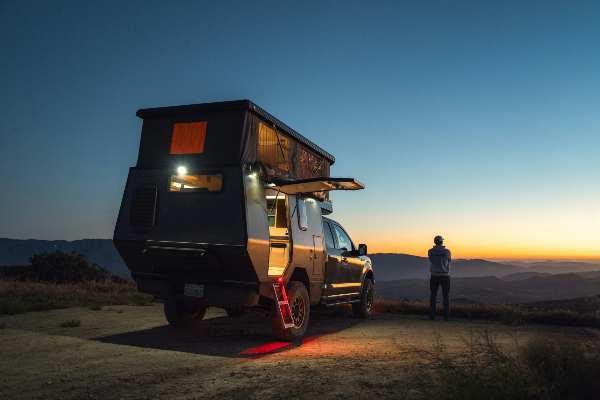
The term "overlanding" originates from "overland," reflecting the travel across land rather than sea. Historically, it referred to cattle droving or trade routes; today, it represents a way to travel across land expanses, often off the beaten track.
Overlanding is the journey itself – a blend of remote exploration, self-reliant travel, and camping. The point of overlanding is to enjoy the journey as much as the destination, often spanning different countries or continents, and lasting anywhere from a few days to several years. The main goal of overlanding is to explore less-traveled paths, immerse oneself in different cultures, and enjoy nature at its purest, all while being self-sufficient.
While camping is a component of overlanding, it's just one part of the broader experience. The extended travel and adventure aspect defines overlanding, whereas camping can be a standalone activity.
Overlanding can be as budget-friendly or as luxurious as you make it. Costs vary widely depending on vehicle choice, gear, route, and personal preferences.
What Is Off-Roading?
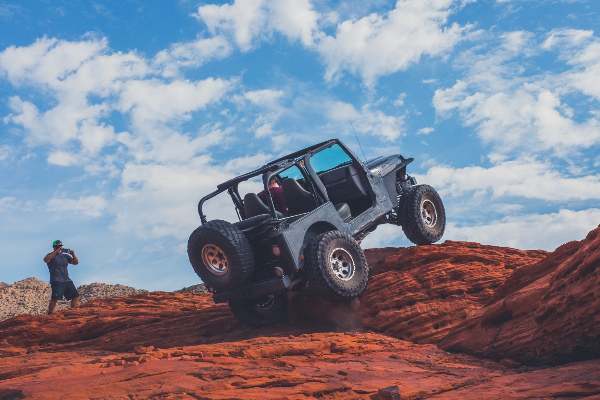
Off-roading is focused on the thrill and technical challenge of driving through rough, unmaintained trails and terrain. It's about testing the capabilities of both the driver and the vehicle under demanding conditions.
The true essence of off-roading lies in conquering tough terrains such as mud, sand, rocks, and steep inclines, which typically requires a capable 4x4 vehicle and sometimes specialized modifications.
Comparing Overlanding and Off-Roading
While both hobbies will get your tires dirty, they cater to different tastes of adventure. Understanding the differences between overlanding and off-roading is crucial for tailoring your experiences and choosing the right kind of journey. Now let's delve into some specific aspects where overlanding and off-roading diverge.
1. Distance and Duration
Overlanding is marked by extended travels that last weeks or longer, spanning vast distances and venturing into remote places for numerous days or weeks. Off-roading trips generally only last a day or a weekend, focusing on local trails.
2. Focus
Overlanding emphasizes the journey, exploring new places, and immersing yourself in nature and different cultures. It places importance on self-sufficiency, equipped with tents and camping gear for long journeys. Conversely, off-roading concentrates on overcoming tough terrains, pushing the limits of your vehicle, and chasing after exhilarating experiences.
Overlanders are driven by discovery, cultural immersion, and scenic enjoyment. On the other hand, off-roaders seek adrenaline-pumping action and the technical mastery of navigating difficult landscapes.
3. Vehicles
Overlanding vehicles are equipped for long-term travel and often include accommodations for sleeping and cooking. Overlanding without a 4x4 can be challenging, especially when off-road terrain is encountered along the way.
However, it's still feasible to overland with vans and campervans, SUVs, CUVs, trailers designed for extended off-grid travel, and trucks equipped with a canopy or bed camper, as long as they are reliable and can carry the necessary overlanding supplies.
Off-road vehicles, on the other hand, are heavily modified and fine-tuned to deliver high performance and durability for tackling challenging terrains. Examples include UTVs (Utility Task Vehicles), ATVs (All-Terrain Vehicles), Overlanding jeeps, and dirt bikes.
4. Camping and Accommodation
Overlanders depend on their vehicles or tents for lodging, usually in isolated locations where self-reliance is crucial. Off-roaders may camp overnight and might set up tents at off-road parks, but they typically do not bring along extensive camping gear.
5. Gear and Equipment
Overlanding gear comprises navigation devices, recovery tools, and camping necessities for extended journeys, including solar panels for electricity generation, a power station to store electricity, and a portable refrigerator to maintain the freshness of food and beverages.
Off-roading equipment focuses on vehicle recovery items and protective add-ons such as skid plates, roll cages, fender flares, and so on.
6. Skillsets and Experience Needed
Overlanding combines off-road exploration with self-reliant living. It needs driving skills over diverse terrains, similar to off-roading, yet also requires a broader skill set. Overlanders must be adept at route planning, gear management, and ensuring sufficient supplies for extended trips. Mechanical know-how is also essential to address potential vehicular issues when overlanding in remote areas. Additionally, survival skills, such as finding water, setting up camp, and dealing with emergencies, are vital for safety and self-sufficiency.
In contrast, off-roaders focus primarily on conquering challenging terrains, requiring mastery of techniques like rock crawling, mud driving, and navigating steep inclines.
Overlanding Pros and Cons
Pros:
- Embraces the spirit of exploration
- Offers cultural and natural experiences
- Can be tailored to various budgets
Cons:
- Requires significant planning
- Potentially more isolated, increasing risk
- Long durations may not suit everyone
Off-Roading Pros and Cons
Pros:
- Provides an immediate thrill and challenge
- Shorter durations make it accessible
- Requires less logistical preparation
Cons:
- Limited scope of travel
- Higher risk of vehicle damage
- Can be expensive due to vehicle modifications
Overlanding vs. Off-Roading, What’s Right for Me
Think of overlanding as the marathon of travel adventures. Consider overlanding if you crave cultural immersion, a passion for extended expeditions through varied landscapes, and a knack for being self-sufficient. Overlanding is your calling if the idea of mapping out long routes and living out of your vehicle for days—or even weeks—fires you up. You'll need to be ready for anything, from fixing flat tires in the backcountry to setting up camp in untouched wilderness.
On the flip side, if you get a rush from revving engines, tackling rocky paths, and powering through mud bogs all in a day's work, then off-roading is your jam. It's about pushing your rig to its limits and challenging yourself on demanding terrains. Plus, it’s usually closer to home and requires less time commitment, so you can get your adrenaline fix and still sleep in your own bed that night.
So, what's your pleasure? Long-haul exploration and cultural treasures or heart-pounding, dirt-flinging thrills?
Equip for Your Adventure With Overland Gear and Accessories
Whichever path you choose, gear up, respect Mother Nature, and get ready for an unforgettable ride.
For overlanders, think long-range fuel tanks, roof racks, and GPS systems. Off-roaders should look at winches, lift kits, and all-terrain tires. Both will benefit from investing in quality recovery gear.
Now, let's delve deeper into the indispensable equipment for your overlanding adventures and discover what other must-haves you should be packing.
1. Portable Fridge

A portable fridge allows you to keep food fresh for days, eliminates the hassle of melting ice, and ensures cold beers await at camp. It's like bringing a touch of civilization to your wild adventures. Once you've had a fridge in the back, you'll never want to go back to coolers!
If you're overlanding solo or with a partner on short trips (up to 3 days), a fridge with a 15 to 25-quart capacity should be sufficient. Here are some of our best portable fridges for short trips, ideal for solo travelers or couples (for trips up to 3 days):
If you're overlanding with a small group or planning longer trips (up to a week), you might need an overlanding fridge in the range of 35 to 50 quarts. Here we've listed some of our best portable fridges for long trips:
- ASPEN 40 PRO 12V 43QT Dual-System IceDrive™ Fridge with Wheels
- BougeRV CRD45 48QT 12V Dual Zone Refrigerator for Overlanding
- BougeRV CR55 59 Quart Portable Fridge for Overlanding
All of our portable fridges come with high-quality compressors that deliver consistent cooling while keeping power consumption low. Thanks to the energy-saving ECO mode, you can effortlessly run them off a battery system. Plus, they're fully capable of being powered by our solar panels and portable power stations.
We've designed them to endure the bumps and drops of rough roads, incorporating features like reinforced corners and heavy-duty handles for durability. If you frequently move your fridge from your vehicle to the campsite or elsewhere, opt for one of our models equipped with sturdy handles and, in some cases, wheels for added convenience. Additionally, several models offer mobile app integration, so you can monitor and adjust settings remotely with ease.
We stand behind our products with extended warranties and provide top-tier customer support. When you choose one of our fridges, you're not just buying a reliable appliance—you're gaining peace of mind on your adventures.
2. Large-Capacity Portable Power Station for Overlanding
Having a large-capacity portable power station is a game-changer for overlanding! It's like having a mini power grid right in your setup. You can charge phones, run fridges, and even power up lights, a fan, a coffee maker, or a portable air conditioner. It keeps you connected and comfortable without the fuss of a generator.
Pair the BougeRV portable power station with BougeRV solar panels, and you'll ensure a sustainable and reliable power source wherever your travels take you.
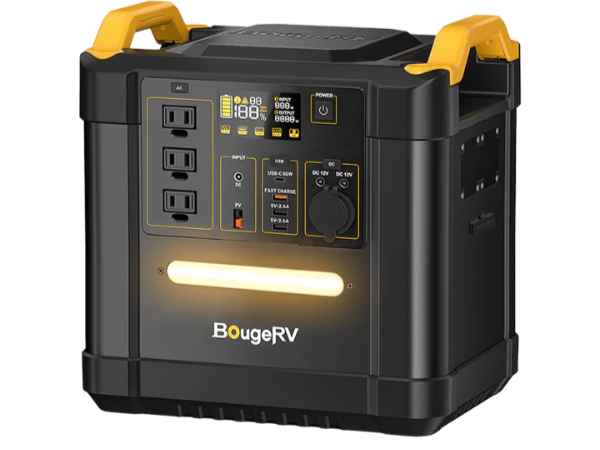
3. 100W, 200W Portable Solar Panels
Overlanding with solar panels is all about keeping your gear charged when you're off the grid. Besides saving on gas, you'll be doing right by Mother Nature. There's no need to idle your engine just for power – solar has got your back!
To help you go further, stay longer, and live better, BougeRV offers a vast selection of 100W and 200W rigid and flexible, semi-rigid, and curved solar panels to charge your electronics and power banks for your overlanding trip. Here, we list some of the best BougeRV solar panels for Overlanding:
- BougeRV 12V 9BB Monocrystalline Bifacial Solar Panel 200W - Best efficient solar panels for Overlanding
- BougeRV Yuma CIGS Thin-film Flexible 200W Solar Panel - The best flexible solar panels for any of your Overlanding vehicles.
- BougeRV 100W 12V 9BB Portable Solar Panel - The best portable solar panel for Overlanding
- BougeRV Arch 200 Watt Fiberglass Curved Solar Panel - 270° bendable solar panel for Overlanding
BougeRV solar panels are designed to be tough and can withstand the rigors of the road including dust, water, and impact. With efficiency rates up to 24% or featuring a thin-film design, they convert more sunlight into usable electricity — which is especially crucial during shorter daylight hours or under suboptimal weather conditions.
Our solar panels are also lightweight and compact, making them a breeze to transport and set up. Whether you go for foldable or flexible designs, or even those with a carrying case, our panels are incredibly portable.
Ease of use is at the heart of our design. You'll find solar panels with built-in stands for easy positioning, and flexible solar panels come with pre-drilled holes for effortless mounting. User-friendly connectors and seamless integration with your existing power system make setting up a panel a piece of cake.
We've proudly served millions of customers worldwide, providing reliable power sources, all backed by professional customer service for all their off-grid adventures.
4. Portable Air Conditioner
Taking a portable air conditioner on your overlanding trips is like bringing a bit of cool comfort to the wilderness. When you're out there tackling tough trails and camping under the stars, things can get pretty hot.
With a portable AC, you can escape the heat inside your tent or vehicle, ensuring a good night's sleep and a refreshing break from the sun's intensity. It's all about beating the heat and enjoying your adventure to the fullest, even when Mother Nature cranks up the thermostat.
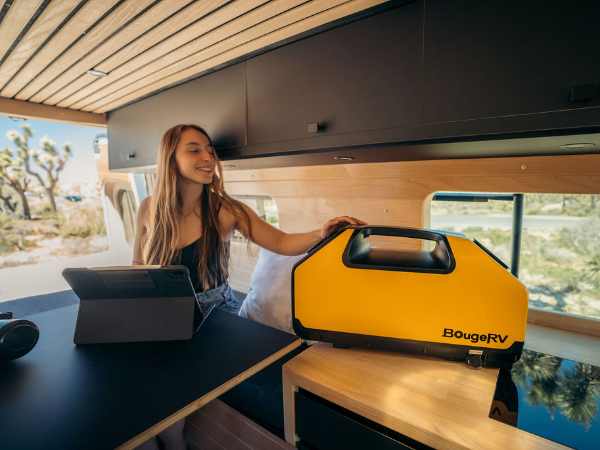
5. Camping Water Heater for Overlanding
A camping water heater is a clutch for overlanding! Think about instant hot showers and warm dishwater anywhere you park. It's all about that home comfort in the wild. Seriously, a little luxury goes a long way!

6. Roof Racks
Roof racks are a must-have for overlanding! They give you tons of extra space to stash gear on top, so inside your ride stays chill and uncluttered. More room for snacks and buddies.
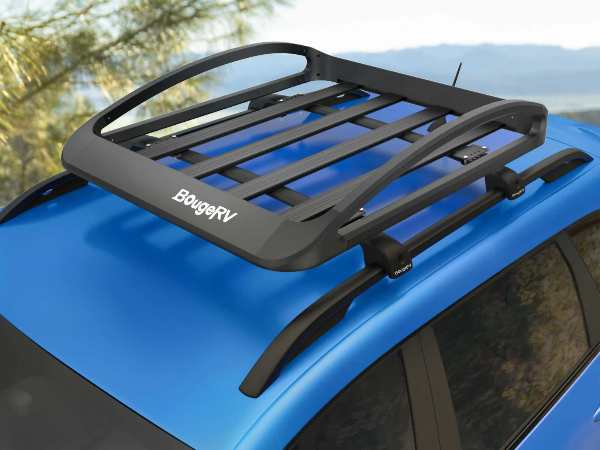
Final Thoughts on Overlanding vs. Off-Roading
Whether you're setting out on an overland trek or gearing up for an off-road excursion, remember that preparation is key. Respect the environment, know your limits, and prioritize safety in your adventures. If you’re interested in more overlanding camping equipment, take a look at BougeRV.com to explore more details.
FAQs
1. What Is the Best State for Overlanding?
States like Utah, Colorado, and California are renowned for their scenic beauty and network of trails, making them top choices for overlanding.
2. Why Is Overlanding so Expensive?
Overlanding can be expensive due to the need for a dependable vehicle, gear for self-sufficiency, and the cost of long-duration travel. However, expenses can be managed with careful planning and resourcefulness.
3. Overlanding vs Camping, What’s the Difference?
Overlanding involves extended vehicle-based travel with camping elements, whereas camping is typically stationary, focusing on the outdoor experience in one location.
















